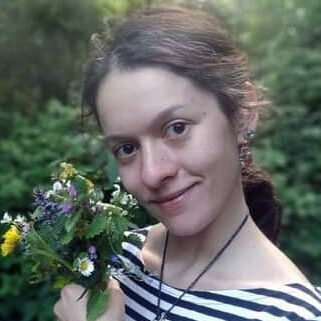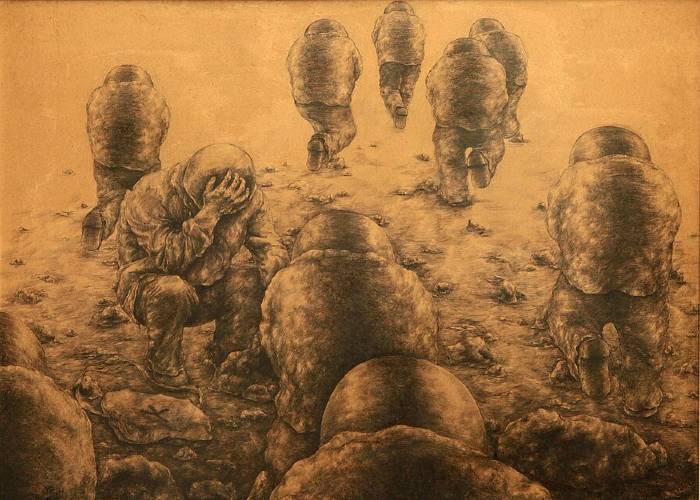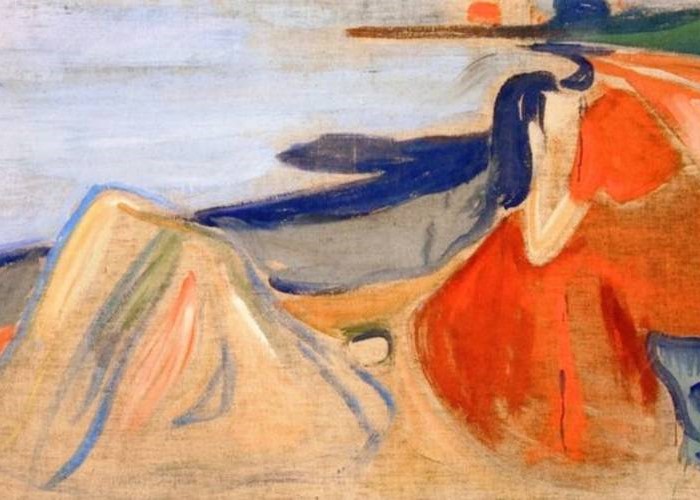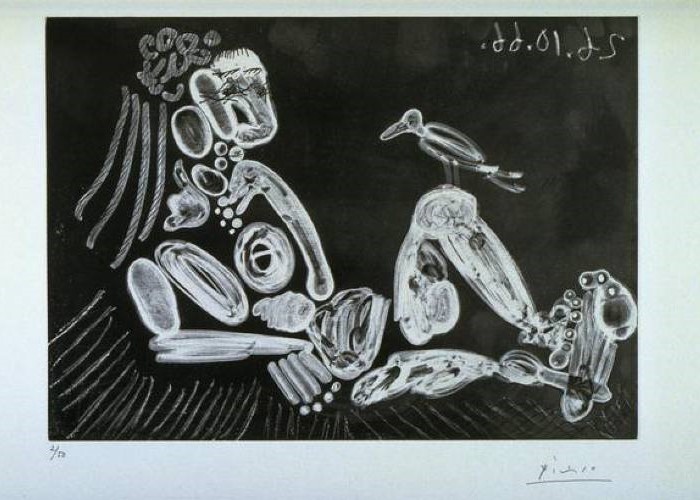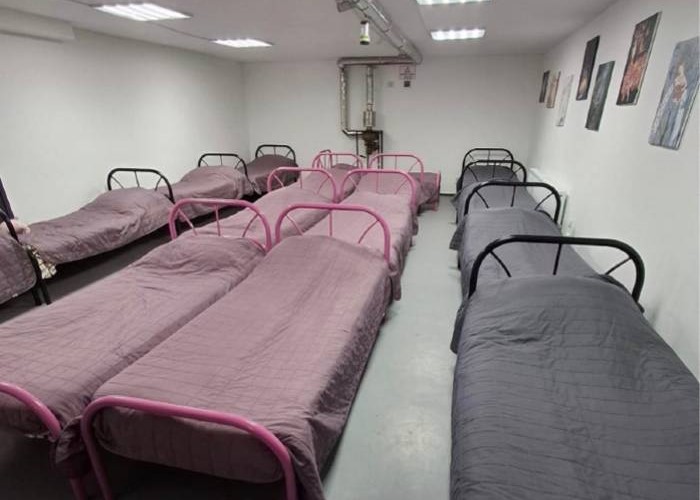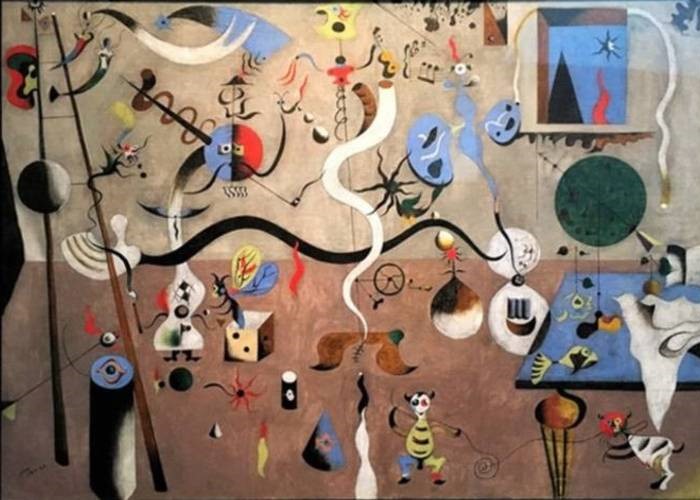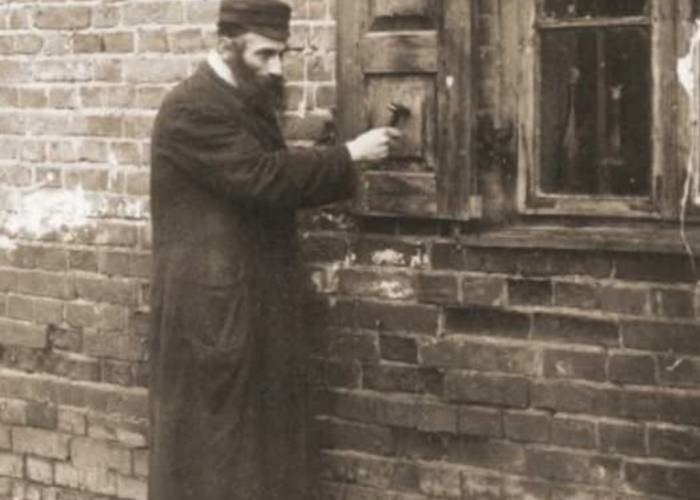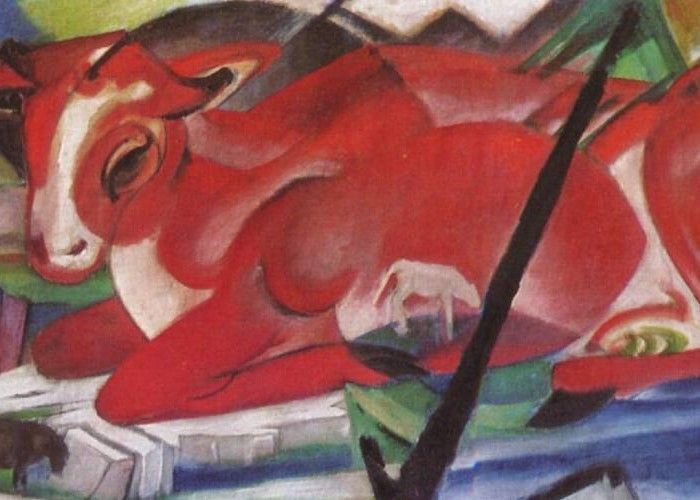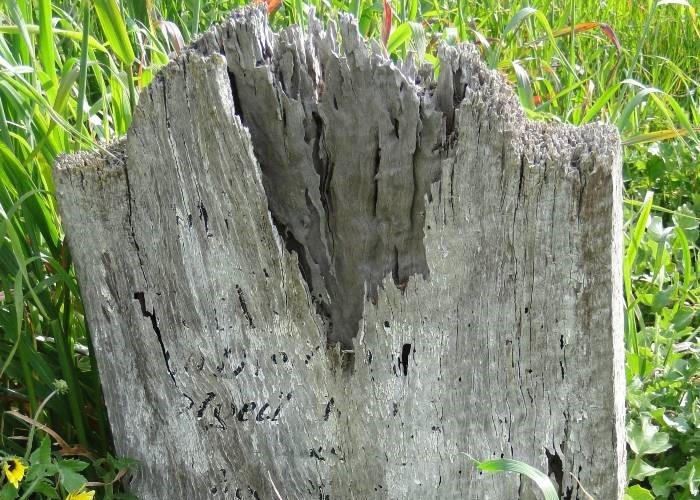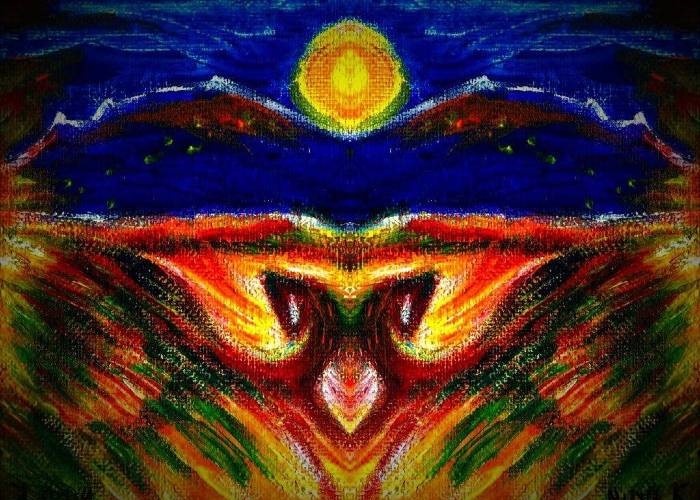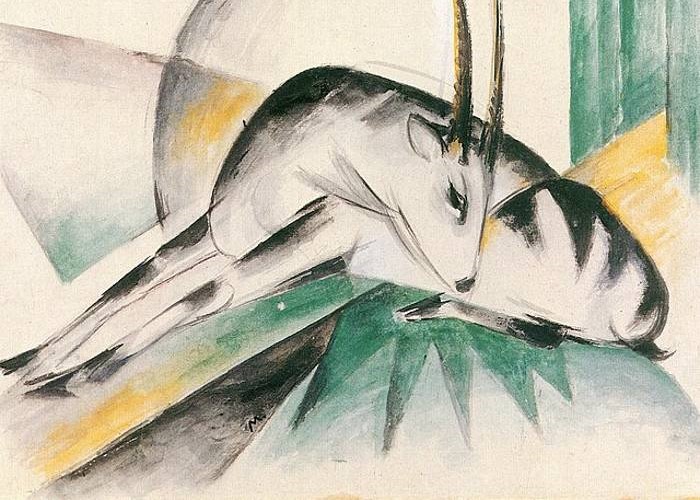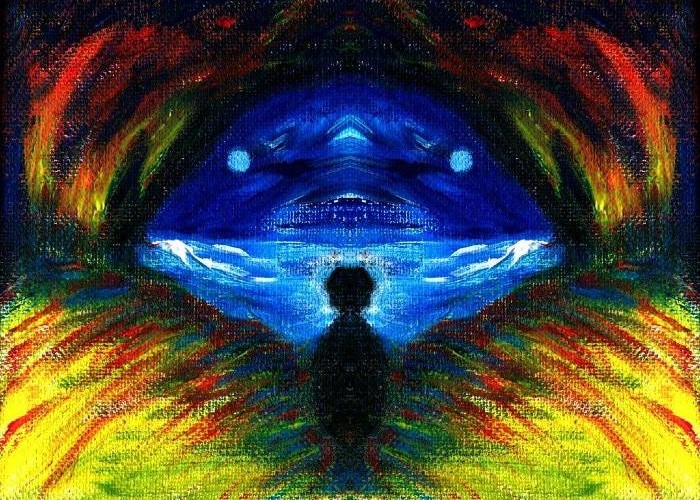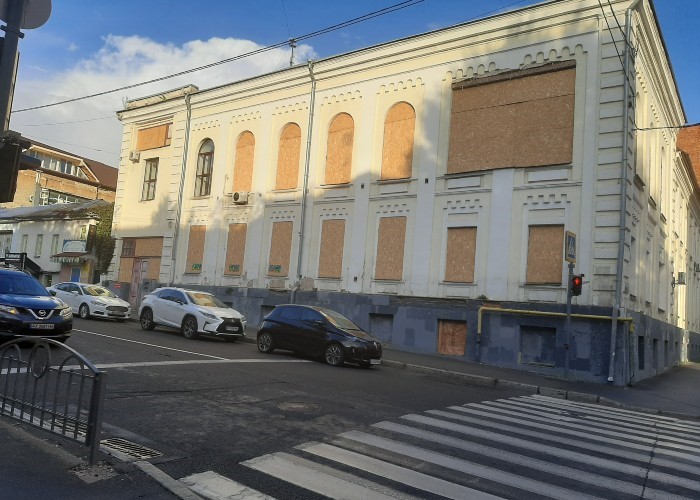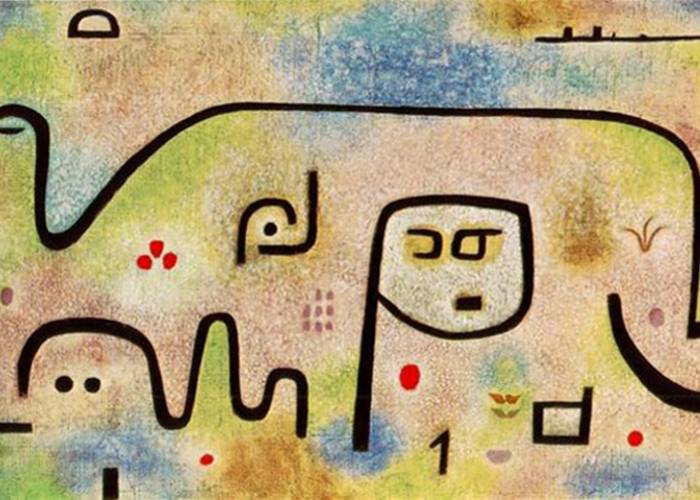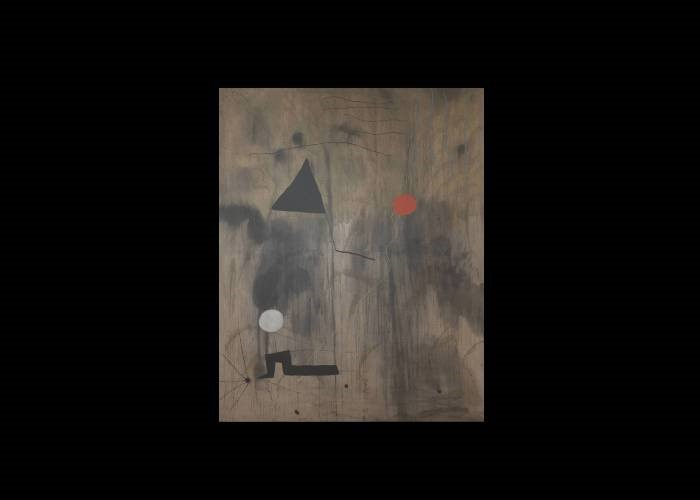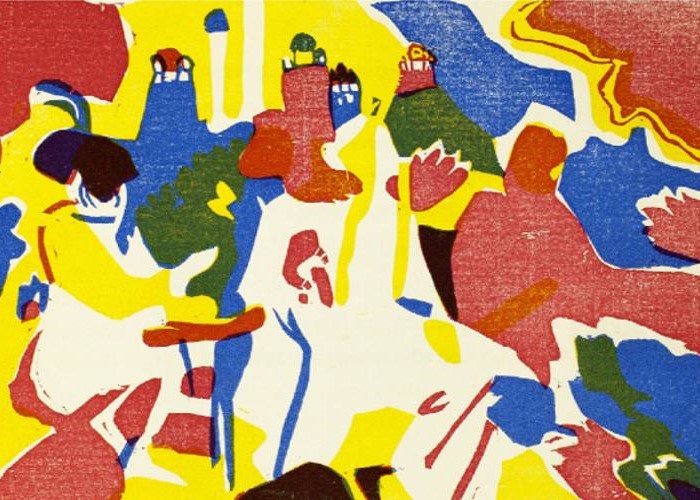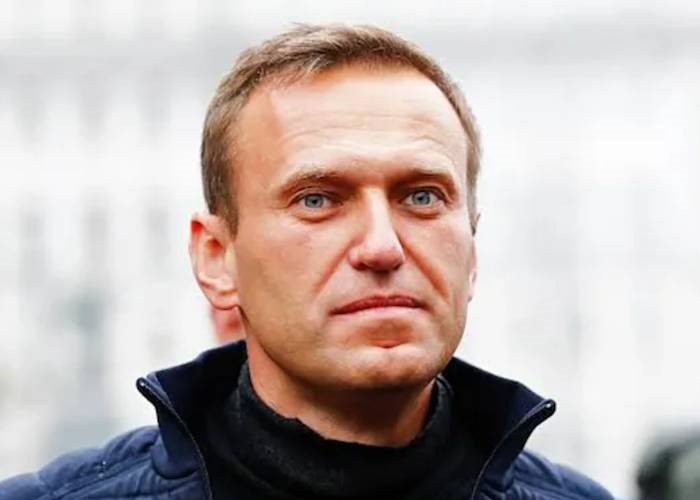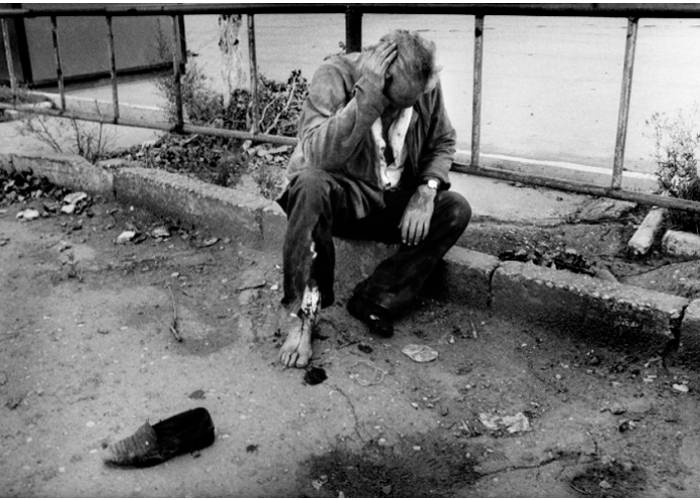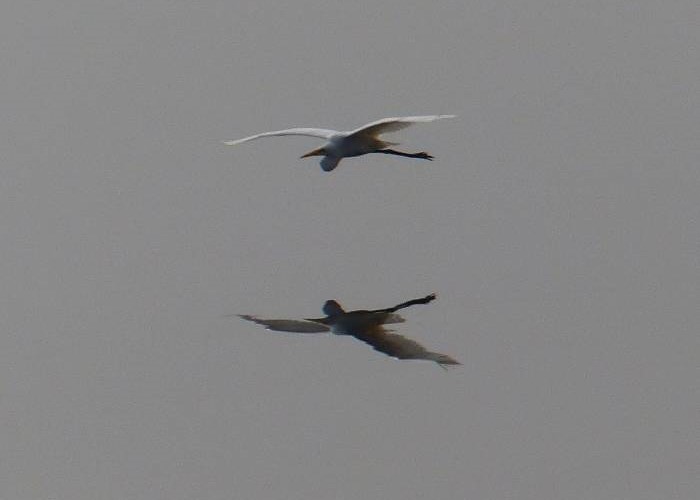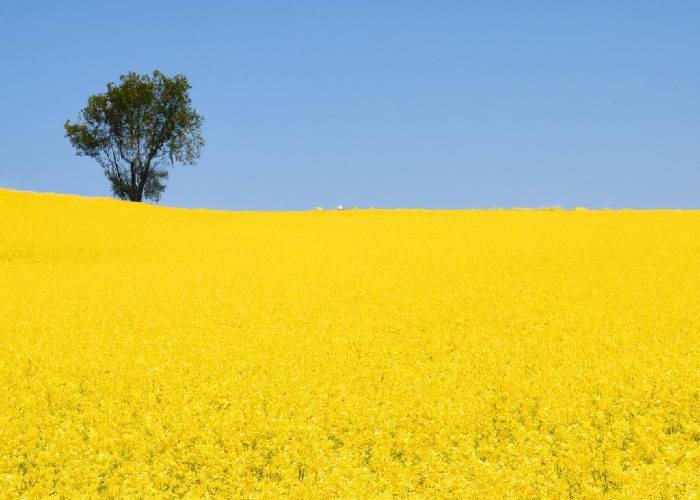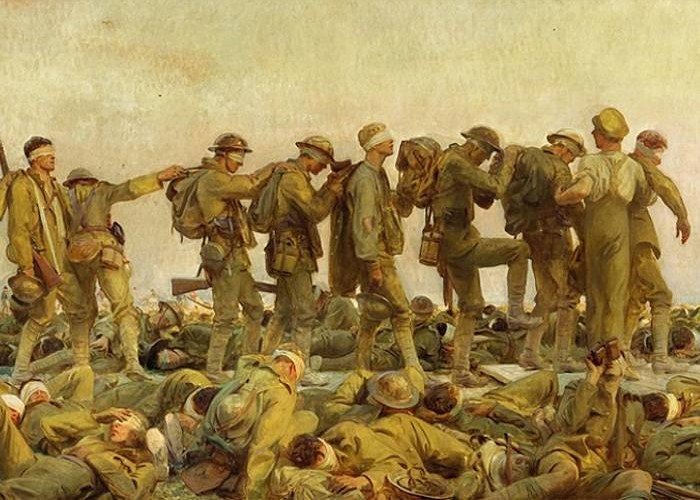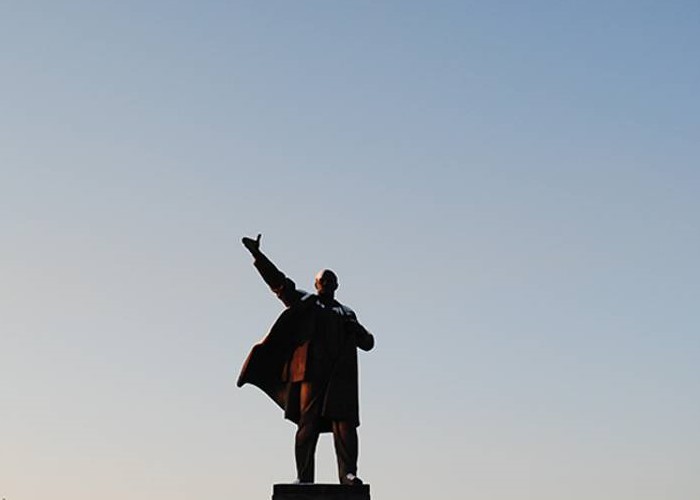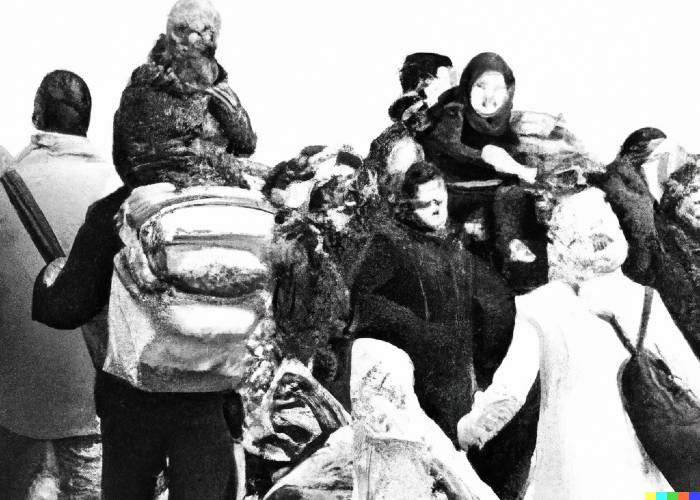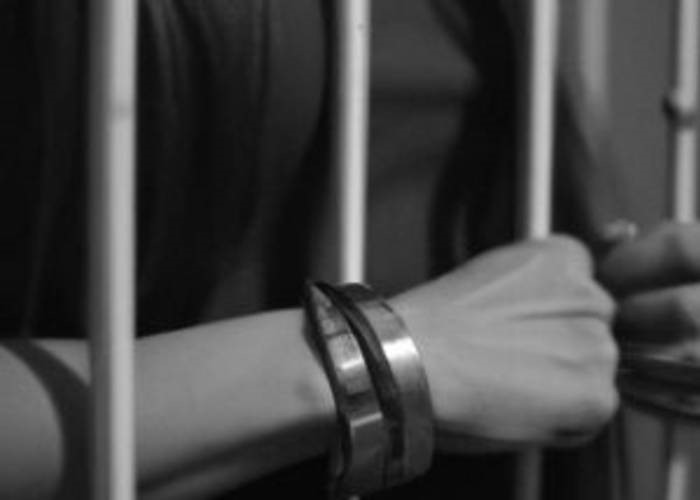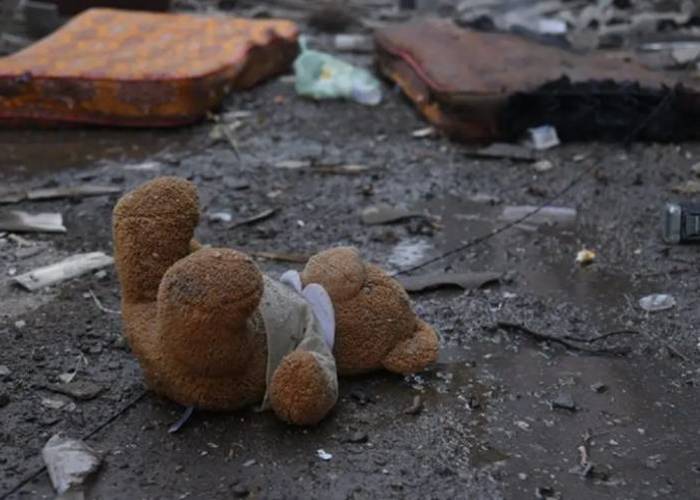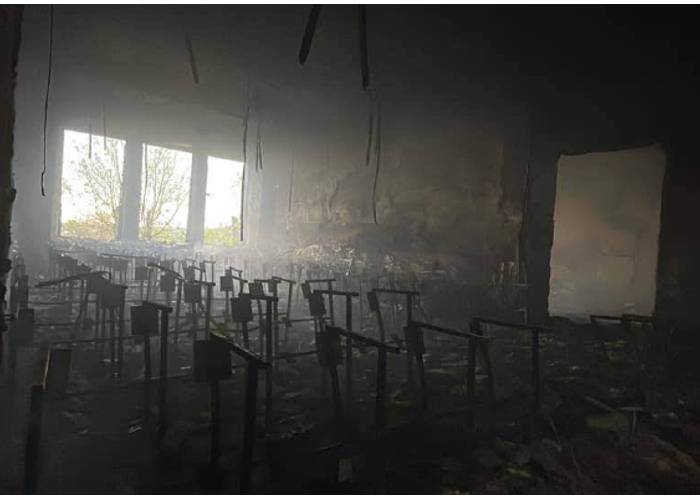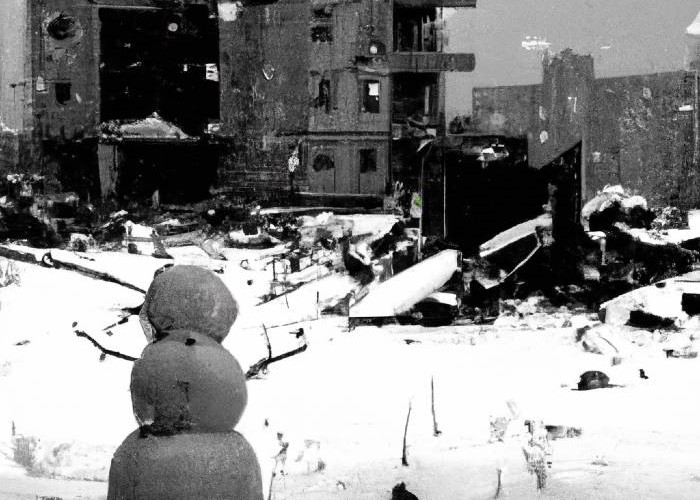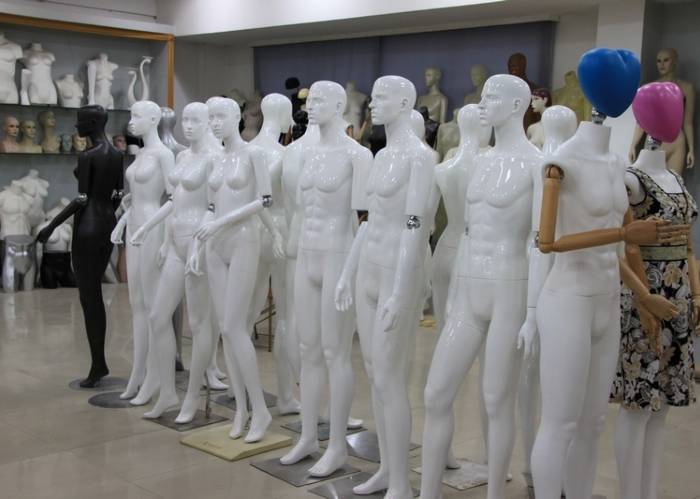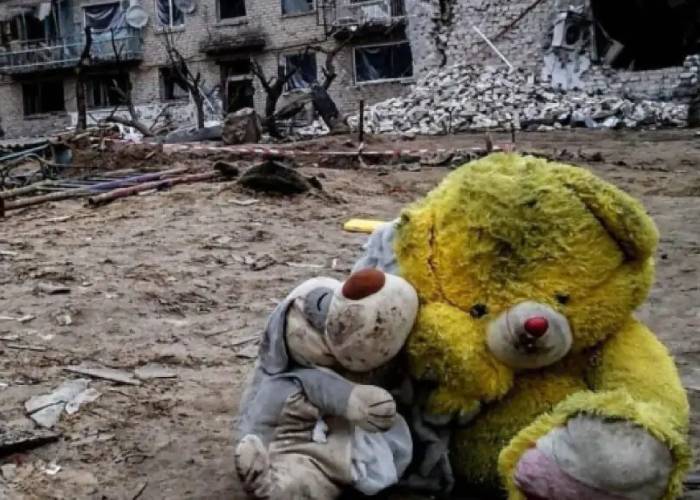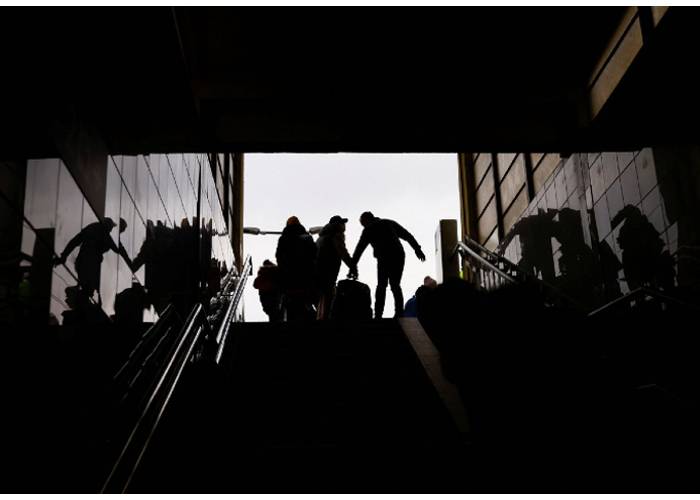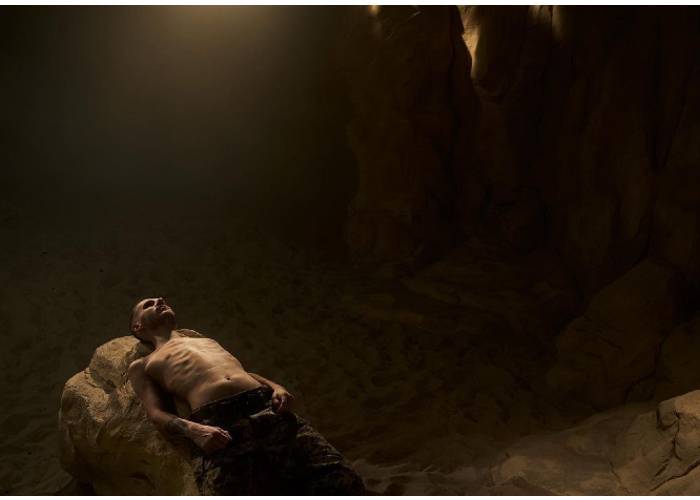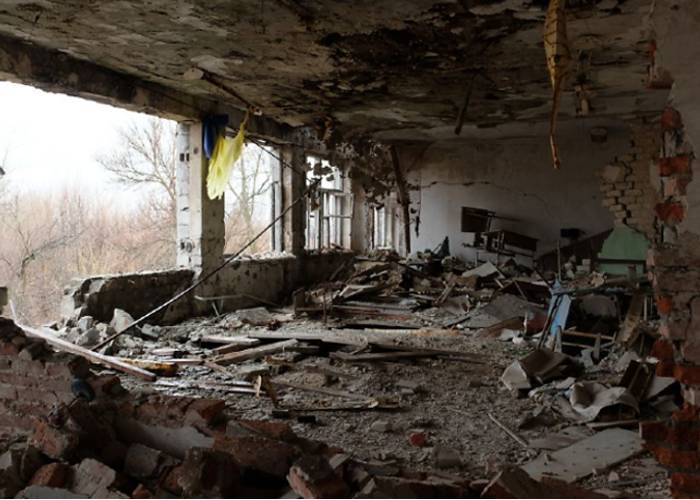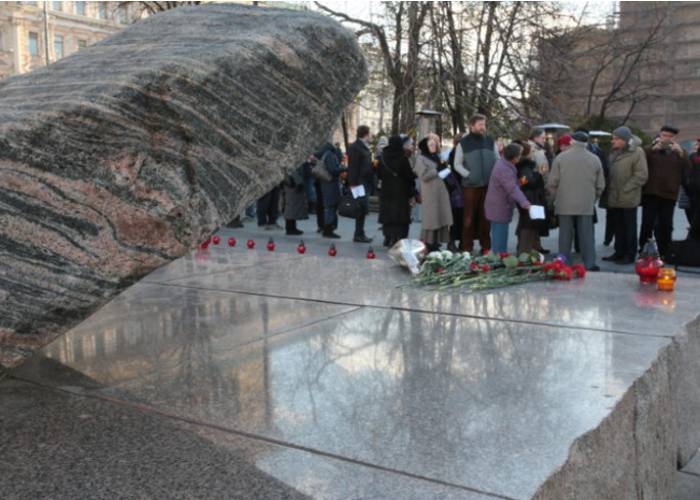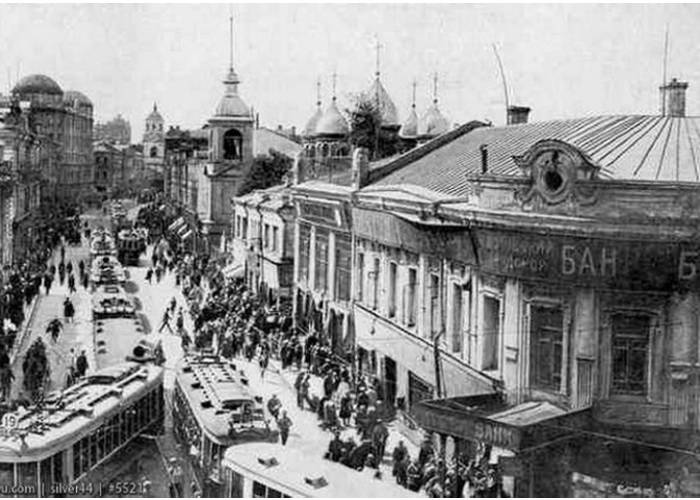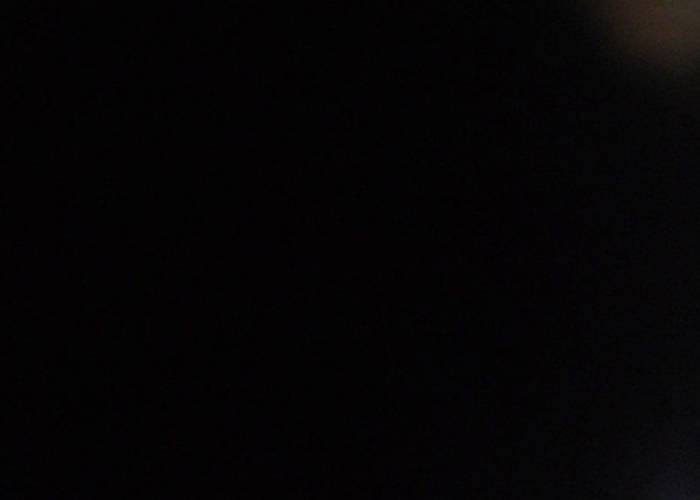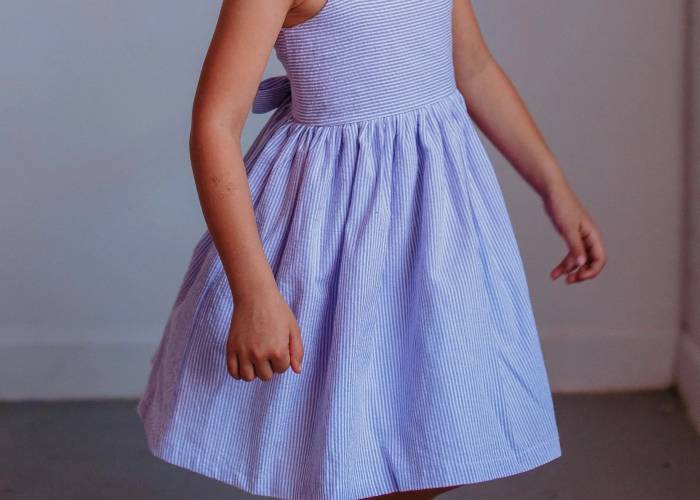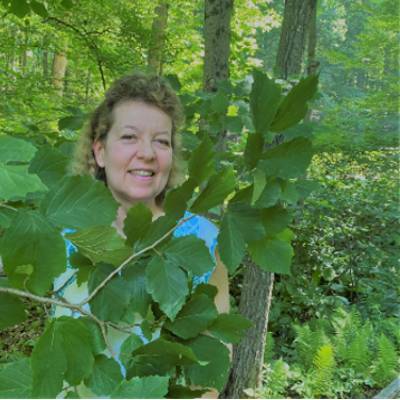She appeared in her lavender sundress, proclaiming: at night
the flashes that crisscross the sky are meteor light.
All is quiet, what we heard aren’t explosions. Just as before,
She insists, our lives are good and merry. There is no war.
She stands there; blood from her gashes wells up, drips down.
The stains spread wider and redden her lavender gown.
It’s peaceful—she says—the birds are singing; the air is clear.
No need for righteous rage or for grown-up fear.
No need for peacekeepers or observers, everything’s fine.
And from her back protrude the bare bones of her spine.
Her temples are charred, ashes drift from her hands to her clothes.
It will be great—she grins—we are close, so close.
I will never retreat or die; I will always win.
She says, as her lavender shroud billows in the wind.
It is all so simple: the sea is blue, and the fire is red.
It is all so plain: two plus two is four, and she is dead.
* * *
МИРНАЯ ДЕВОЧКА В СИРЕНЕВОМ САРАФАНЕ
Пришла — в сиреневом сарафане — и говорит,
Что каждый всполох в вечернем небе — метеорит,
А взрывов нет, не они ей были сейчас слышны,
И хорошо нам живётся, весело — без войны.
Стоит — а кровь по ногам стекает из рваных ран,
И всё краснее её сиреневый сарафан…
Но в мире мир, говорит, и птицы поют в горах,
И не нужны ни святая ярость, ни взрослый страх,
Ни миротворцы, ни наблюдатели — не нужны…
А позвоночник её торчит из её спины,
И кисти рук у неё обуглены, и виски.
Всё будет здорово, улыбается, мы близки.
Я никогда, говорит, не сдамся и не умру.
И вьётся саван её сиреневый на ветру…
Всё очень правильно, очень просто, как дважды два:
Огонь горяч, океан глубок, а она мертва.
Translator’s Notes. In Russian poetry of the past (for example, in Blok’s “Na Pole Kulikovom”, Andrei Bely’s “K Rossii”, Kedrin “Alyonushka”), Russia was often portrayed as a young, beautiful woman, immortal, pure, unchanging, always prevailing over the dark forces. This poem alludes to that tradition.
“Our lives are good and merry” is an allusion to a quote from Joseph Stalin. In 1935, as his murderous reign of terror was gathering steam, he said in a speech: “Life is becoming better, comrades. Life is becoming merrier.”
___________________________
The poem and the translation were first published in “View.Point” («Точка.Зрения»), a publishing project that focuses on Russian-language anti-war poems (http://litpoint.press).
English translation edited by Bruce Esrig
